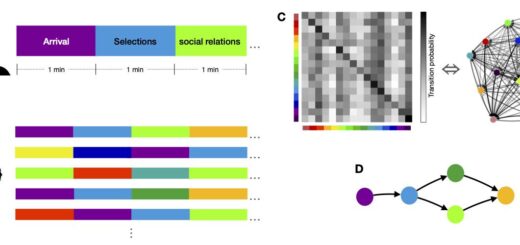Citizen history and its discontents: Postscript
By Matt Phillpott
There are an increasing number of crowdsourcing projects making claims about being ‘citizen history’. Old Weather, one of the more successful crowdsourcing projects of recent years, has started to use the term, and Zooniverse (the company behind it) has taken the same infrastructure this year for a World War One project called Operation War Diary. Then there is the project, Children of the Lodz Ghetto, in which volunteers undertake actual research tasks, helping to track down the names and lives of school children who fell victim to the Holocaust. By its nature this research is often complex, as names vary and change, and sources come in a variety of languages.
Citizen history is the current ‘buzz-word’, and its use is a claim to be moving beyond crowdsourcing and offering as well an opportunity to learn and master the skills collaboratively and co-operatively, of an historian.
In this third talk of this year’s Digital History seminar, Mia Ridge from the Open University shared her research into crowdsourcing and citizen history projects and asked whether they are really helping people to become historians or if they are, in actuality, overstating their contribution. As Mia, herself put it, ‘can citizen history projects succeed without communities of experts and peers to nurture sparks of historical curiosity and support novice historians in learning the skills of the discipline?’
The role of the ‘expert’?
Mia was very careful to stress that the importance of ‘expert’ historians being involved at the beginning, and throughout the project, is not to suggest that the grassroots community that these projects hope to build cannot, and do not, manage to deal with complex historical data and interpretation on their own.
When citizen history projects work well, the forums, wikis and other online spaces become an active hive of activity and co-operative discussion and collaborative learning and training. However, these communities are built upon learning about sources and their interpretation in a collaborative environment, and there are times when professional historians can offer advice where the sources are difficult or no other answer is forthcoming, or to pick up and highlight on details uncovered that are of wider historical significance. Generally, people who take to citizen history projects are there to discover the past, and learn how to use the sources, and the input of professional historians are valued as part of that process.
Often however, the role of the professional or ‘expert’ historian, is largely hidden away. Mia noted that often professional historians take an active role in the forums near the beginning of a project to help to get things started, but later on, whilst they continue to check the forums, their input reduces as teaching, research, and funding applications, by necessity, take precedence. Ideally this shouldn’t happen, but there are very real obstacles that limit the time and effort professional historians can give to citizen history projects. How we overcome this difficulty is not an easy question to answer.
What makes citizen history a success?
For a citizen history project to become successful not just in developing a resource of research materials through crowdsourcing, but also in enabling the development of historians, it is essential to build a critical mass of discussion and usage, and to expose people to historical materials that are potentially interesting. It is, also, important to include expert input, as this can transform the process.
Essentially some citizen history projects are really crowdsourcing and are perhaps misusing the term, whilst others fail to reach their goals for one reason or another. Others are highly successful. Yet there is a risk in these projects that citizen historians will become seen as faux historians, with limited skills and abilities, where in reality there are a variety of levels of citizen historians ranging from those just beginning the process to those who have built up the skills and knowledge required of any other historian.
Mia ended her talk with a call for crowdsourcing and citizen history project organisers to be more careful with the terminology they use. Signing up to a project and doing a bit of transcription work does not make that person a historian, but this can become the end result. Projects need to be clear about what it is they are offering and asking, and what exactly is required to become a citizen historian rather than, perhaps, a citizen transcriber.
